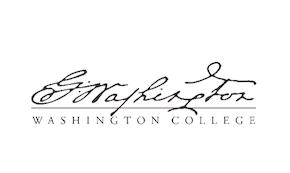Thanks to a $1 million grant from the Maryland Department of Commerce and a matching $1 million gift, Washington College’s Center for Environment & Society will have a newly endowed position aimed at creating entrepreneurial opportunities for students in the sciences.
Funding for the Chief of Entrepreneurial Science comes from the Maryland E-Nnovation Initiative (MEI), a program designed to spur basic and applied research in scientific and technical fields. It is joined by a $1 million gift from Louisa Copeland Duemling H ’10 GP ’10, to establish the Andelot Endowment Fund for the Center for Environment & Society.
The MEI grant is the largest single award of its kind that the State of Maryland has made to Washington College.
“Washington College is an economic driver for the Eastern Shore and the entire State of Maryland,” Commerce Secretary Mike Gill says. “The research its faculty conducts and the bright young minds they nurture fuel Maryland’s economy and keep our State humming. We are proud to partner with this institution and look forward to seeing the fruits of the new position for years to come.”
Duemling’s $1 million gift established the Andelot Endowment Fund for the Center for Environment & Society in 2015. In addition to enabling the College to secure the MEI funding, the endowment will help the College and CES support a variety of purposes, including research-based teaching and scholarship opportunities. For instance, the money may help pay the salary of a visiting scientist, support the cost of a research vessel and equipment to enable further research, or help qualified students pursue internships and other types of real-world learning.
“Louisa Duemling’s foresight and generosity have created a remarkable opportunity for the College,” says President Sheila Bair. “I have no doubt that her gift, and the State’s matching financial support, will result in exciting opportunities for our students to create innovative solutions to a host of environmental and scientific challenges facing our region and our world. This program is yet another example of how Washington College is applying the analytical and problem solving skills at the heart of a liberal arts education to the issues confronting our society, providing practical know-how for our students and generating growth for our local economy.”
John Seidel, director of the Center for Environment & Society, points out that this new position in entrepreneurial science is novel in liberal arts colleges. “We are very excited to engage students, faculty, and staff in practical problems, looking for cost-effective environmental solutions that can be designed, implemented, and marketed in such a way that we also generate economic activity in our communities.”
Doug Levin, currently deputy director of the CES, will become the first Chief of Entrepreneurial Science. Although the program will be linked to multiple disciplines at the College—including environmental science and studies, math and computer science, engineering, chemistry, physics, and biology—its initial focus will be on expanding and commercializing the Basic Observation Buoys, or BOBs, that form the backbone of Levin’s initiative, the Chester River Watershed Observatory (CRWO). Lauded as a national model, the CRWO uses state-of-the-art technologies to monitor every aspect of the Chester River while involving college and K-12 students, as well as teachers, on every level of that endeavor—from the hands-on engineering of building a buoy with its attendant electronics and gear, to gathering the data and making it publicly accessible.
In the past, Seidel says, a major impediment to using buoys on a meaningful scale has been their high cost. But Levin and his team have lowered the expense dramatically, making it possible to deploy them in large numbers. It also makes them desirable across the world, wherever there are issues of water quality. “We see a growing market for these kinds of cost-effective solutions,” Seidel says.
The Observatory’s ultimate aim is to connect surrounding communities to the waterway’s future and provide more thorough information on which to base decisions that will benefit the river and the Chesapeake Bay. Through the CES program called Rivers to the Bay, which has been funded for the last three years by the Maryland State Department of Education, the CES already has worked with nearly 60 educators in Kent and Queen Anne’s counties to teach data-gathering techniques and to develop K-12 lesson plans that incorporate the Observatory.
“The Observatory is a wonderful example of linking students at various levels to problems of national importance,” says Seidel. “There is no better way to learn than by doing, and the lessons these students learn will stay with them for a lifetime. Doug Levin and his colleagues are masters at making these connections, and now we have the opportunity to really capitalize on what they have built. The State of Maryland and visionaries such as Mrs. Duemling deserve enormous credit and our gratitude for making such opportunities possible.”
MEI was created by the General Assembly in the 2014 legislative session and in its first year has provided $8.3 million in funding to leverage $10.6 million in private donations toward nine new professorships. In addition to the Washington College grant, those positions include a post at Morgan State University, three posts at the University of Maryland, College Park and two each at University of Maryland Baltimore and Johns Hopkins University. MEI dollars can be used to pay salaries of newly endowed department chairs, staff, and support personnel in designated scientific and technical fields of study; fund related research fellowships for graduate and undergraduate students; and purchase lab equipment and other basic infrastructure and equipment.




Write a Letter to the Editor on this Article
We encourage readers to offer their point of view on this article by submitting the following form. Editing is sometimes necessary and is done at the discretion of the editorial staff.